Agar-agar as a soil penetrant because I think my soil is hydrophobic!
ginjj
4 years ago
Featured Answer
Sort by:Oldest
Comments (15)
JXBrown (Sunset 24, N San Diego County)
4 years agoginjj thanked JXBrown (Sunset 24, N San Diego County)ginjj
4 years agoRelated Professionals
Lowell Landscape Architects & Landscape Designers · Alpharetta Landscape Contractors · North Hills Landscape Contractors · Meridian Window Contractors · Surprise Landscape Contractors · San Bruno Landscape Contractors · Twin Falls Landscape Contractors · Vallejo Landscape Contractors · Lauderdale Lakes Landscape Contractors · Alexandria Fence Contractors · Canoga Park Fence Contractors · Oldsmar Fence Contractors · Belleville Solar Energy Systems · Elmhurst Landscape Contractors · Lakewood Decks, Patios & Outdoor Enclosuresginjj
4 years agoJXBrown (Sunset 24, N San Diego County)
4 years agoginjj thanked JXBrown (Sunset 24, N San Diego County)Nil13 usda:10a sunset:21 LA,CA (Mount Wash.)
4 years agoginjj thanked Nil13 usda:10a sunset:21 LA,CA (Mount Wash.)ginjj
4 years agoginjj
4 years agoarmoured
4 years agoginjj
4 years agoarmoured
4 years agoginjj
4 years agoJXBrown (Sunset 24, N San Diego County)
4 years agolast modified: 4 years agoginjj thanked JXBrown (Sunset 24, N San Diego County)
Related Stories

GARDENING GUIDESGardening Solutions for Heavy Clay Soils
What’s a gardener to do with soil that’s easily compacted and has poor drainage? Find out here
Full Story
GARDENING GUIDESHow to Stop Worrying and Start Loving Clay Soil
Clay has many more benefits than you might imagine
Full Story
GARDENING GUIDESGarden Myths to Debunk as You Dig This Fall and Rest Over Winter
Termites hate wood mulch, don’t amend soil for trees, avoid gravel in planters — and more nuggets of garden wisdom
Full Story
FALL GARDENING5 Ways to Put Fall Leaves to Work in Your Garden
Improve your soil and yard the organic way with a valuable garden booster that grows on trees
Full Story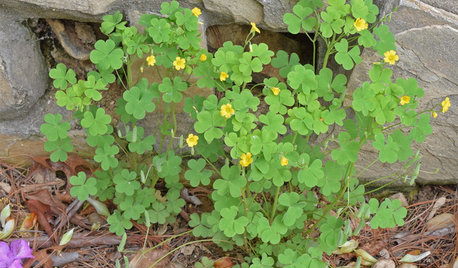
GARDENING GUIDESWhat Your Weeds May Be Trying to Tell You
An invasion of weeds can reveal something about your soil. Here’s what is going on and what to do about it
Full Story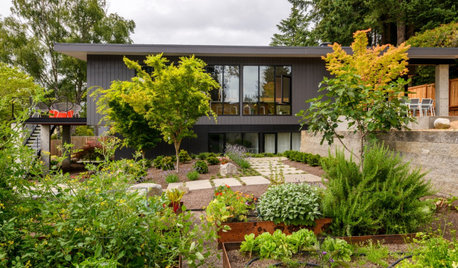
GARDENING GUIDES10 Ways to Make Your Garden More Productive
Maximize your garden’s growth and output by building healthy soil, expanding growing space and collecting rainwater
Full Story
GREEN BUILDINGInsulation Basics: Heat, R-Value and the Building Envelope
Learn how heat moves through a home and the materials that can stop it, to make sure your insulation is as effective as you think
Full Story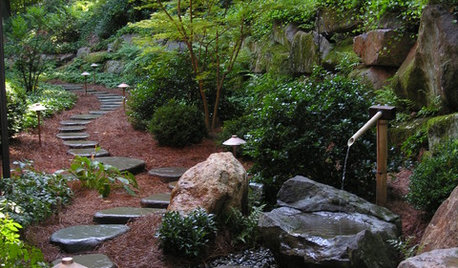
GARDENING GUIDESLowly Mulch Makes Magic in the Garden
Find out why you should be mulching your garden beds and what material is right for your site
Full Story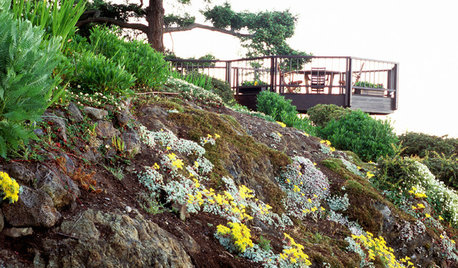
GARDENING GUIDESDesign a Garden by Looking at Its Roots
A sustainable, low-maintenance garden begins underground
Full Story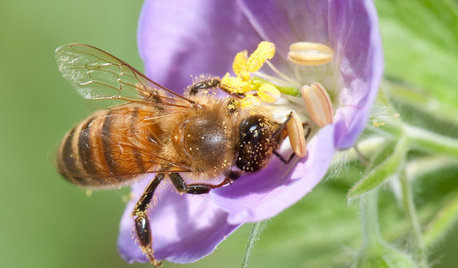
GARDENING GUIDESGreat Design Plant: Wild Geranium Puts on a Color Show
Oodles of bright blossoms and an easygoing nature make this woodland plant a welcome addition to a shady garden
Full Story





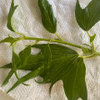


JXBrown (Sunset 24, N San Diego County)